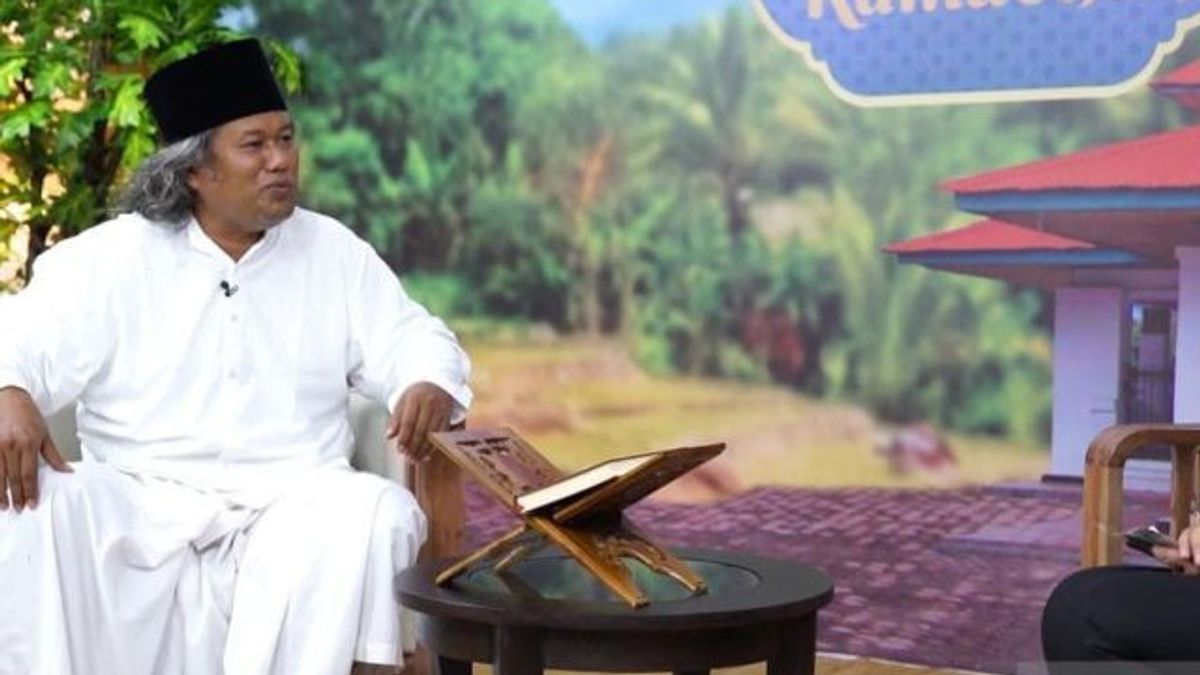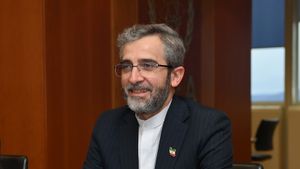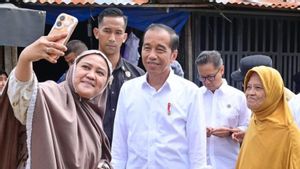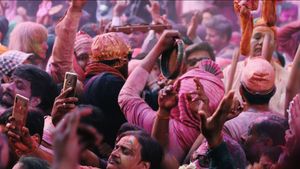JAKARTA - Nahdlatul Ulama (NU) cleric KH Ahmad Muwafiq or familiarly called Gus Muwafiq argues that the concepts of religion and culture are two things that cannot stand alone, let alone cancel each other out.
"The two concepts are indeed destined to unite and fill each other. If fasting is a religious commandment, then the sweetness of banana compote when breaking the fast is the culture," said Gus Muwafiq in a statement received in Jakarta, quoted by Antara, Friday, April 8.
This was conveyed when he was a speaker in the Ramadan Inspiration Breaking Fasting program on the PDI Perjuangan Party BKN (National Cultural Agency) YouTube account.
According to him, the transformation of Islam to fulfill destiny as a religion that brings coolness to all mankind will take time. "Islam has been moving for 800 years before reaching the mainland of the archipelago," added the cleric who was born in Lamongan, East Java.
Therefore, the meeting between the concepts of religion and culture occurs everywhere, with the character and style of Islam in Indonesia being very diverse, because Indonesia is inhabited by hundreds of thousands of cultures, tribes, and traditions.
"In Arabia, Hajj is a common thing. Here it is a special thing and the title is attached. In Java, it changes to Wak Kaji. Prophet Muhammad too, arrived in Indonesia with an additional name, Kanjeng Nabi. Salat was called prayer. This is culture, but the religion and substance remain," explained the Alumni of UIN Sunan Kalijaga Yogyakarta.
The host of Sadarestuwati then asked about issues that are often debated in the community, namely tahlilan and grave pilgrimages. Gus Muwafiq also responded lightly while interspersed with jokes.
According to him, the matter is only a product of prayer, so it shouldn't be a concern.
"If a Muslim dies, indeed religion tells us to bury it, everyone agrees that the corpse must be prayed for. Well, the problem is, the way to pray for each person and/or area is different. Now there are those who pray online, then praying a moment of silence, and there was also the tahlilan earlier," he said.
If the problem is investigated further, he continued, it will become a language problem, namely the sentence tahlil Laa ilahaillallah which ends in -an.
"In Java, everything ends in -an. The veil, the hijab that is being worn is called a headscarf or hijab. The same goes for the tahlil earlier. When prayers, giving alms, and saying thayyibah sentences for the deceased, it is called tahlilan. just like that," said the man who was once a personal assistant to the 4th President Abdurrachman Wahid (Gus Dur).
VOIR éGALEMENT:
Meanwhile, regarding the phenomenon of the grave pilgrimage, he is of the opinion that visiting the graves of relatives, teachers, kyai, Wali Songo, habib, and sayyid scattered throughout the country brings its own benefits.
"If it's a grave pilgrimage, all Jakartans will eventually visit Jombang if all of the graves are visited. Tourist buses will sell out, odong-odong will sell out, baskets of rice will sell out. Jakartans love Jombang because that's where the teacher lives. Then a pilgrimage to Demak because there is the tomb of Sunan Kalijaga, everyone loves Demak. To the lands where our teachers reside, a love for the land will be awakened. It is comprehensive, that is what makes we love our homeland. If you are told to bomb the, of course you will be afraid and not do it, it's the place where the teachers are ," he said.
The English, Chinese, Japanese, Arabic, and French versions are automatically generated by the AI. So there may still be inaccuracies in translating, please always see Indonesian as our main language. (system supported by DigitalSiber.id)
















